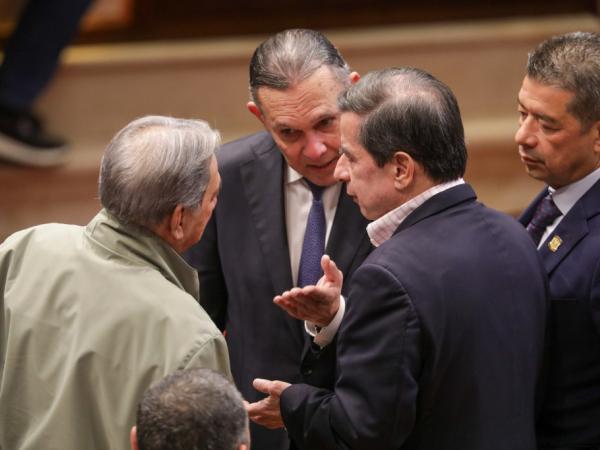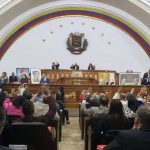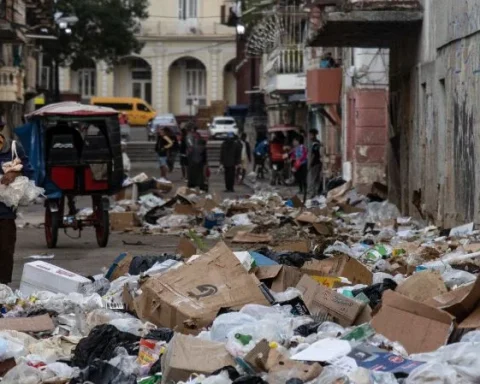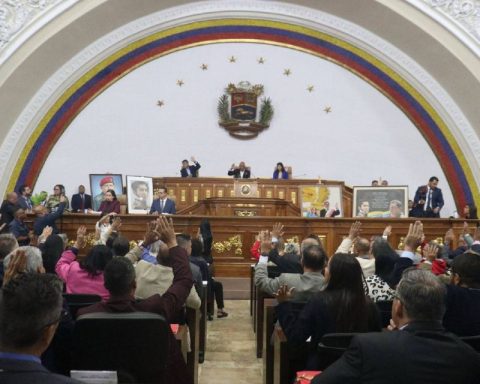Colombia is currently in a scenario that has never been seen before in history, after the economic commissions of Congress denied the amount of the Budget requested by the government of President Gustavo Petro for next year, in the midst of a heated environment that faces the ruling parties and the opposition and puts fiscal stability at risk.
It seems that the meetings that the Ministry of Finance has been holding with legislators for more than a month, to explain its accounts and justify the $523 billion it proposed as the total amount of spending, did not have the expected effect. Proof of this are the seven proposals that were filed to reduce this amount, which, although they were ultimately defeated, also sacrificed the request of the Casa de Nariño.
For reading: Amid strong controversy, Congress denied the amount of the 2025 Budget
That the endorsement of the majorities in the four economic commissions in the Senate and the House is required and the fact that these four groups have not been able to reach an agreement has created a complex scenario in which any initiative that is tabled, related to the Budget, has a high probability of failing, as was seen during the session of last Wednesday, September 11, which finally had to be postponed.
Headless project
The first thing that must be made clear regarding the 2025 budget is that this project has not been sunk, although it was left without an official amount, so it is not known for certain how much the expense accounts will be, both in investment and operation, since debt obligations must be met, whether one likes it or not, so as not to affect the image of the country before credit and risk agencies around the world.
Ricardo Bonilla, Minister of Finance.
Mauricio Moreno/ Portfolio
Thus, to know what is coming on this front, it must be noted that according to the Organic Budget Statute (Decree 111 of 1996), Congress has three dates that must be followed to guarantee the correct debate of the proposals that are put on the table, regardless of whether there is rebellion within it. legislative ranks, and if they are not met, they open the door to the start of a fiscal dictatorship.
The first is on September 15, when the amount of the General Budget of the Nation must be defined. Precisely here is the point of contention between the senators, representatives and the Ministry of Finance, since a cut of at least $12 billion is being requested from the $523 billion, while in Casa de Nariño it was made clear that removing that figure will translate into less social investment in the regions.
If this deadline is not met, which actually expires on Saturday, September 14 at midnight Because Sunday is not counted as a working day, the path to follow is divided into at least two major opposing currents that interpret, on the one hand, that the budget project is already failing and that said amount and discrimination must be determined by decree.
You may be interested in: The ghost of the blackout for the summer of 2025-2026 appears again
On the other side of the coin are those who maintain that if the first deadline is not met, there is a second point for September 25, the date on which the entire proposal must be approved in the first debate, even with the amounts broken down by sectors and entities. This interpretation ensures that they could refer to that calendar to also solve the ‘dead end’ of the amount.
Closing date
Regardless of what happens on September 15 or 25 and whether or not the application is approved According to the Minhacienda and the DNP, there is a third deadline that cannot be missed and that does specify the path to follow if a consensus is not reached by that time. This is October 20, when the entire General Budget of the Nation must be approved, in the first and second debate, both in the House and in the Senate.

Economic growth
iStock
If this deadline is not met, President Gustavo Petro will be empowered to issue a decree regulating spending for the following year, although here again there are two interpretations, in which on the one hand it is said that the $523 billion in dispute can be taken and on the other it is noted that the current norm must be taken as a starting point, that is, the $503 billion of the current PGN (that of 2023).
Whatever path is taken, it should be noted that Congress and Casa de Nariño have not been able to reach an agreement and that while the economic commissions are asking for a cut of at least $12 billion, President Petro and his team reiterated that what is on the table “is not a product of chance” and therefore cannot be lowered, if we want to ensure economic growth and stop the slowdown.


















